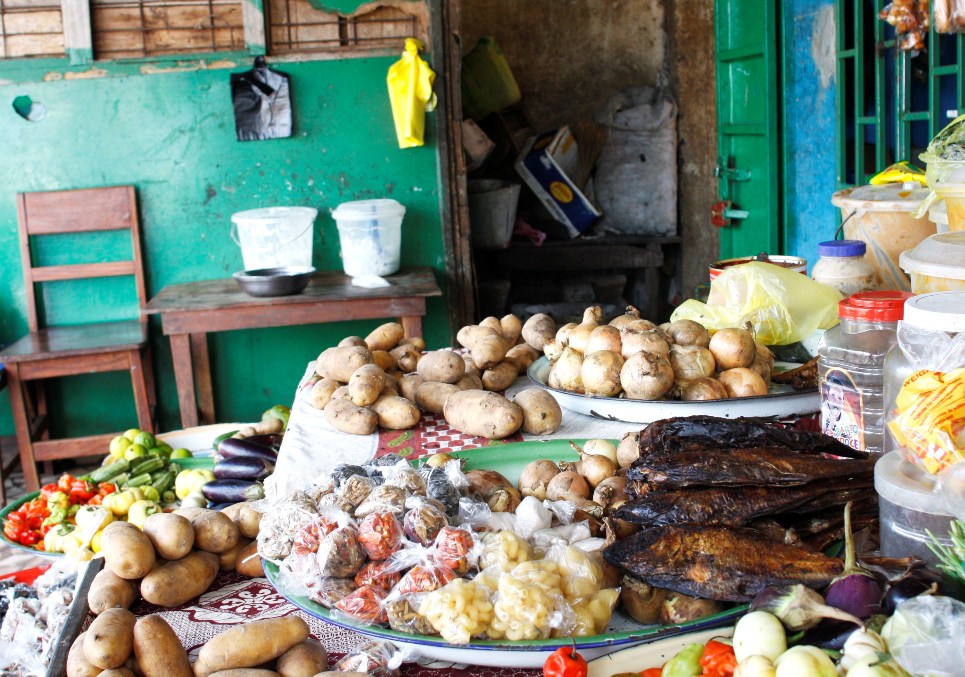Squeezed, jointly published by the Institute for Development Studies (IDS) and Oxfam, also reports that the increased strain on families brought about by price hikes is accompanied by a rise in domestic violence and alcohol and substance abuse.
“The failure of wages to keep up with rising food prices is putting a strain on family relationships. For many men, the inability to be the family breadwinner is a real source of stress and can lead to conflict and violence within households. Parents’ inability to invest in the futures of their children is also a major source of stress,” Richard King, policy research advisor at Oxfam and co-author of the report, told IRIN.
The report noted that while there is optimism about rising wages, these have failed to keep up with the pace of food price hikes and inflation.
“People are working harder over longer hours, and their wages are not keeping pace with inflation, so they have to adapt wherever, and however, possible,” said the report.
Social changes
Women, in particular, have borne the brunt of burgeoning food prices, with many of them having to juggle both domestic chores and work to feed their families. In Zambia for example, female nurses and teachers have had to moonlight as street vendors to supplement their incomes, while in Kenya, some young mothers were forced into prostitution to make ends meet, the report said.
According to Naomi Hossain, a research fellow at IDS and a co-author of the report, the need to earn cash to buy food is quickly replacing the importance people put on social relationships.
“As families increasingly struggle to earn enough to eat, we are seeing how money is becoming more important than relationships, to the point that the social implications are potentially alarming. Policymakers need to catch up,” she said.
And Oxfam’s King said, “People are becoming more individualistic, and reciprocal sources of support that people tend to rely on are becoming strained. There is rising stigma and uneasiness attached to turning to neighbours for help, in the knowledge that the same will be expected in return.”
According to the UN Food and Agricultural Organization, poor families were more likely to marry off their daughters so that they there would “one mouth less to feed”. In rural Bangladesh, a Tufts University study found that women in households with lower food security reported experiencing “psychological abuse, and about half of women reported physical abuse from their husbands”.
The Overseas Development Institute reported that initial mechanisms for coping with higher food costs - including cutting back spending on expensive foods, borrowing to cover costs of living, and finding ways to work and earn more - were quickly followed by signs of distress, such as “sales of assets, beginning with consumer goods, with land, tools and livestock, sold only after that buffer was exhausted.”
IDS’s Hossain accuses policymakers of being blind to the social changes brought about by food price hikes. Instead, they fixate on “changes they can measure,” she said.
Agriculture suffering
Agriculture as an economic venture has also suffered. While a hike in food prices should ideally inspire more people to engage in agriculture to produce more food, the result, according to the joint IDS-Oxfam study, has been the opposite.
“Instead of flocking to farming as prices rise, the view of agriculture is that it has become much less reliable over the past few years as a result of uncertainties related to input costs, returns and the effects of climate change. People are turning to more lucrative yet dangerous occupations instead - gold mining in Burkina Faso, for example. Education is seen as a ticket off the farm, and agricultural aspirations are rare,” Oxfam’s King said.
The study recommends, among other things, improved social protection policies to address the vulnerability of the poorest people, including cash transfers or subsidies. Improved management of food reserves and regulation of the international grain trade is also needed. Steps to make agriculture a more reliable vocation should also be taken, such as investing in training, technology and sustainability.
ko/rz
This article was produced by IRIN News while it was part of the United Nations Office for the Coordination of Humanitarian Affairs. Please send queries on copyright or liability to the UN. For more information: https://shop.un.org/rights-permissions





